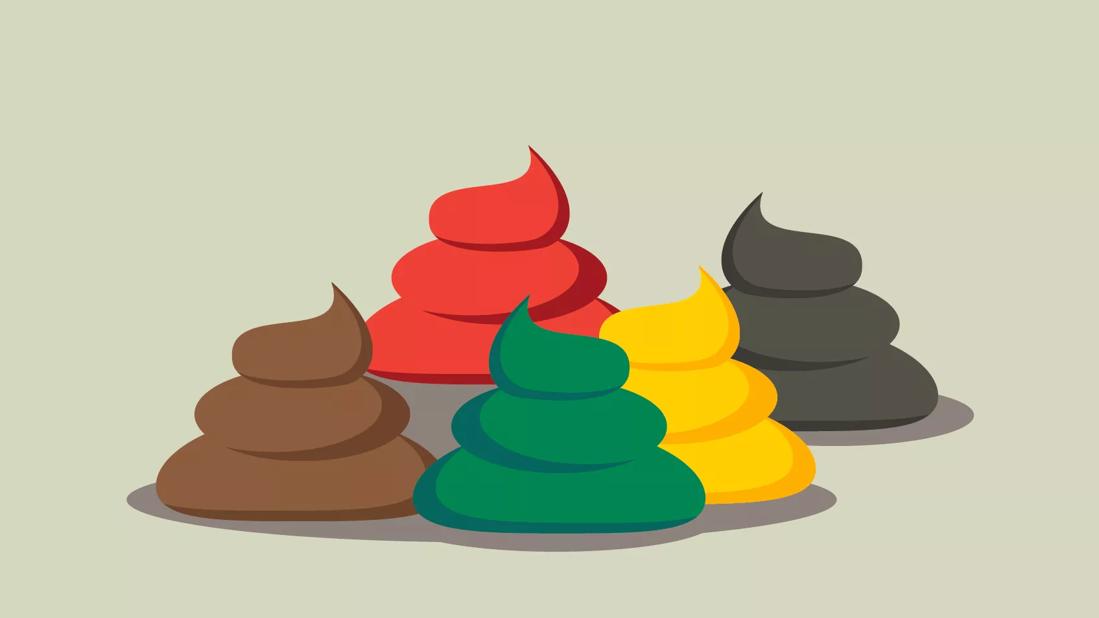Poop that’s green, red or some other hue is probably due to something you ate — but it could be a sign of health issues, too

Image content: This image is available to view online.
View image online (https://assets.clevelandclinic.org/transform/3246f8c9-f7e4-480d-92fc-169a9efdc7ec/ColorsofPoop-1045514872-770x533-1_jpg)
Various piles of colorful poop in brown, red, green, yellow and black.
A: Brown may not be the most exhilarating of colors, but nobody wants a breathtaking rainbow finish to a bowel movement. It can be a bit unnerving to see an eye-catching hue in the toilet. Boring is better when it comes to poop color.
Advertisement
Cleveland Clinic is a non-profit academic medical center. Advertising on our site helps support our mission. We do not endorse non-Cleveland Clinic products or services. Policy
But the reality is that you might see something unusual now and then. The good news? There’s probably a simple explanation for the colorful #2 that involves breakfast, lunch, dinner or a snack.
Vegetables, fruits and vibrant food dyes offer a crayon box of tinting options — because what goes in must come out. That can lead to green poop, red poop, black poop, yellow poop … well, you get the picture.
Green is the most common color to make a surprise appearance. So, if you’re eating a lot of “greens” — like kale, spinach and broccoli — you might see that hue naturally appear at the end of the digestive process.
Bright frosting on a cupcake also can turn your poo into some interesting (and unnatural) looking shades.
Any food-related tint should disappear quickly once the source is flushed from your system.
But if odd colors linger, it could be a sign that something more is going on. An unexplained greenish poop could be a symptom of:
Other colors also may serve as a signal of a medical issue. Be watchful for:
Advertisement
The bottom line on color? Don’t overthink a one-day appearance of an interesting hue, but contact your doctor if the color of your poop doesn’t revert back to boring brown within a few days.
— Gastroenterologist Christine Lee, MD.
Advertisement

Delivered every Tuesday!
Sign up for our Health Essentials emails for expert guidance on nutrition, fitness, sleep, skin care and more
It's a letter about the news!

Every two weeks once
Sign up for our Health Essentials emails for expert guidance on nutrition, fitness, sleep, skin care and more.
Learn more about our editorial process.
Advertisement
Your #2 can be the #1 sign of a medical issue
There’s usually a simple answer, but it also can be a reason for concern
The short answer from a registered dietitian
What’s normal? When to worry?
What are your bowel movements telling you?
The Short Answer from physician experts
Despite unhealthy side effects, 40% of adult Americans still pee in pools
From odors to colors, it’s more than OK to ask your doctor these questions
Type 2 diabetes isn’t inevitable with these dietary changes
Applying a hot or cold compress can help with pain
Pump up your iron intake with foods like tuna, tofu and turkey